From climate change to Russian militarism to the COVID-19 pandemic, global problems demand a global response. Developing the skill set to meet that challenge is the goal of the Maine Model United Nations Conference (MeMUNC).
The mock summit attracted about 275 students from high schools across Maine. From May 11-13, they had the run of the University of Southern Maine’s Gorham campus, which was largely empty following the end of the spring semester a week earlier.
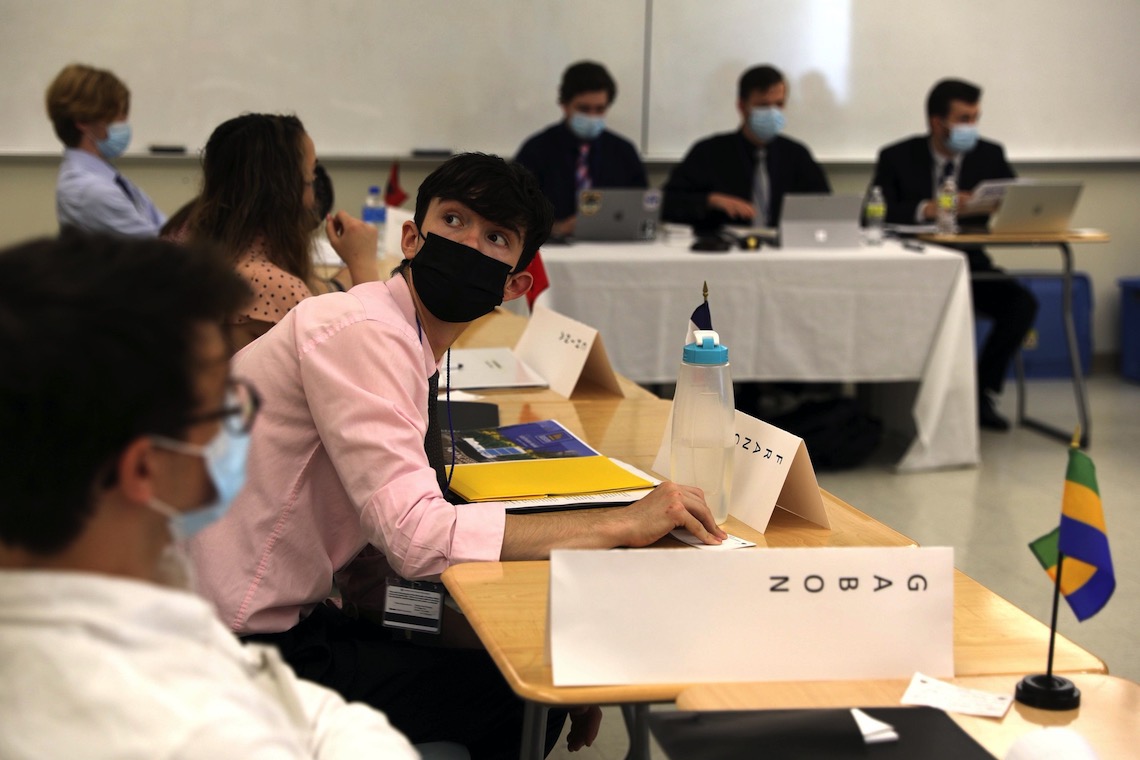
Bilal Hussein, a senior at USM majoring in Political Science, presided over MeMUNC as Secretary General. Along with about 20 classmates, he stuck around after final exams to mentor the high school students.
“Change starts at the local level. You can’t just wait and hope for something big to happen,” Hussein said. “Once I graduate, I’m going to try to take some of those things with me into the workplace and into wherever I end up going, lessons I couldn’t learn anywhere else but UN.”
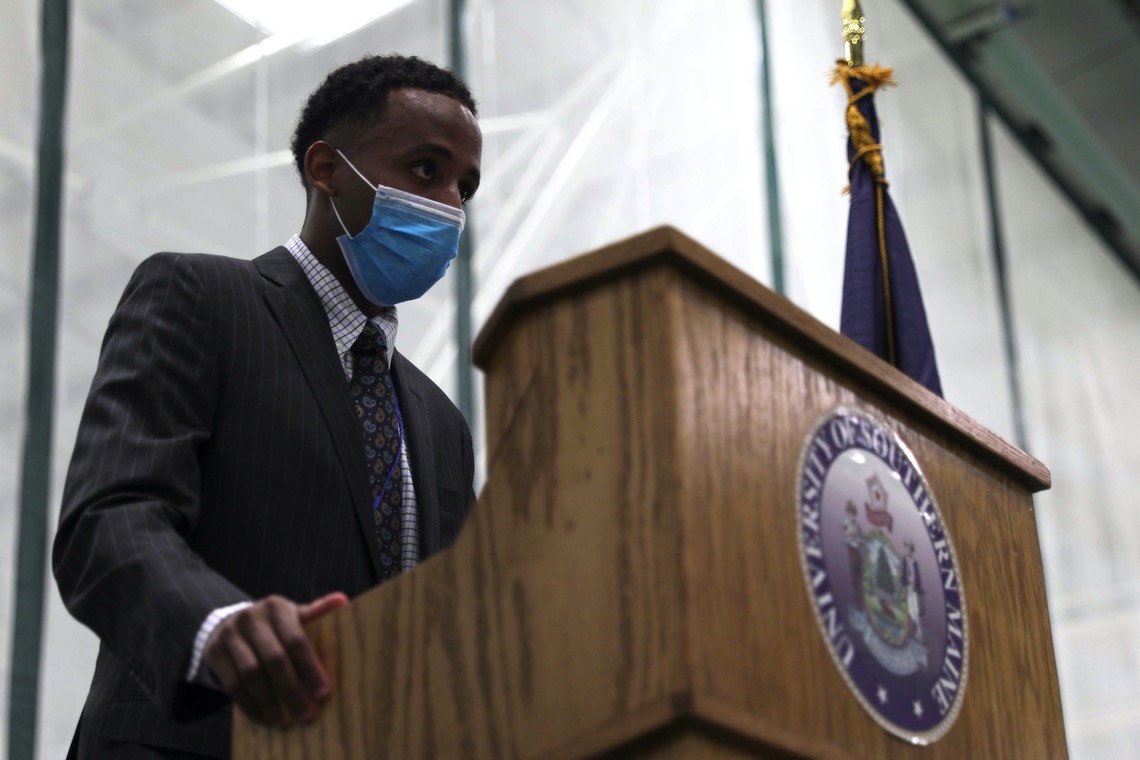
Participants take on the roles of delegates for UN member countries. They get their assignments weeks in advance in order to develop a strategy to achieve their policy goals. At the conference, they divide into committees for negotiations which can bring them into conflict or partnership with other delegates.
MeMUNC is not meant to identically replicate the current state of international affairs in the real world. Delegates pattern their behavior on broad historical trends. From that baseline, they are able to explore creative diplomatic options that could only exist in a virtual setting.
Some events, however, are so earth-shaking that they can’t go unaddressed. Less than three months ahead of MeMUNC, Russian forces invaded Ukraine. The security dynamic throughout Europe immediately shifted with neighboring countries strengthening their defenses as a bulwark against Russian aggression.
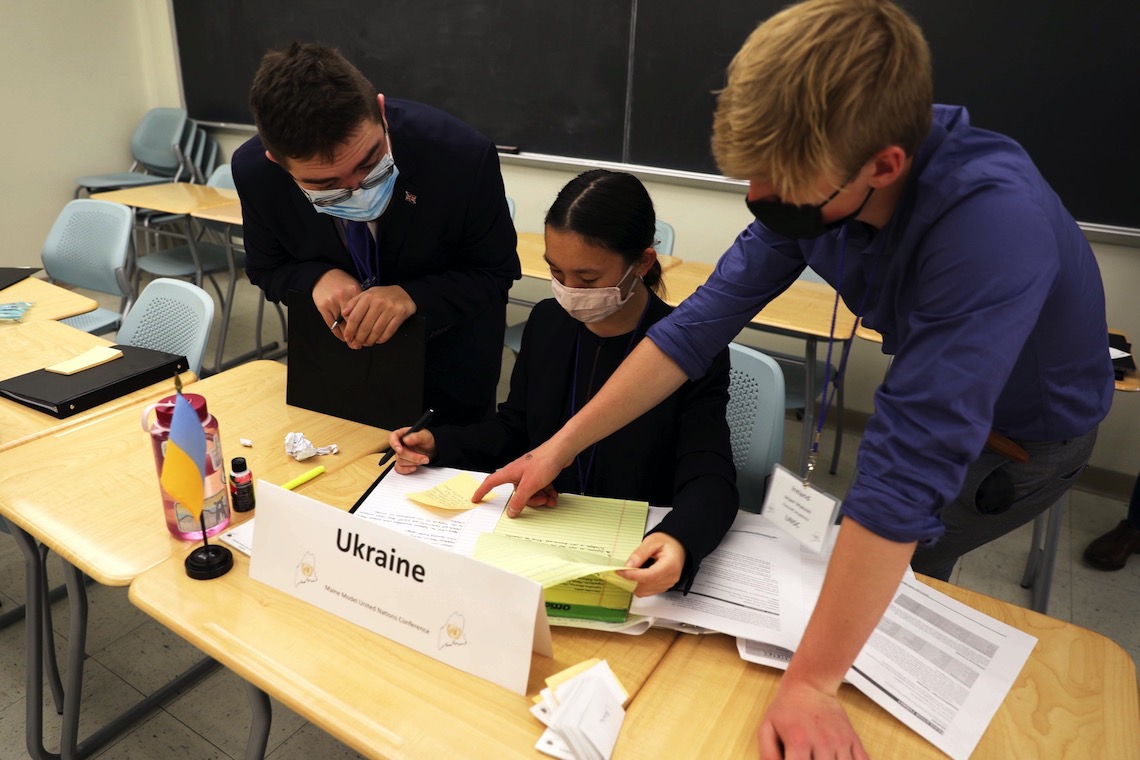
Early planning for MeMUNC split the delegate into four committees focused on education, the environment, the economy, and decolonization. The war in Ukraine revealed a gap in those plans which organizers filled by adding a Security Council as their fifth committee. Representing Ukraine on the Council was Alex Bolland, a junior at Greater Portland Christian School.
“I have some friends who are actually working in Ukraine with some orphans and they provide housing to them, so it is sort of a personal topic to me,” Bolland said. “I was a bit nervous, I still am, to keep up with the moving views of Ukraine.”
Not only did Bolland overcome her jitters, her work in support of nuclear disarmament earned Distinguished Delegate honors at the closing ceremony. The Best Delegate award for the Security Council went to Jasper Makowski, a senior at Foxcroft Academy representing Ireland. He saw the award as a testament to the value of compromise rather than rigid extremism.
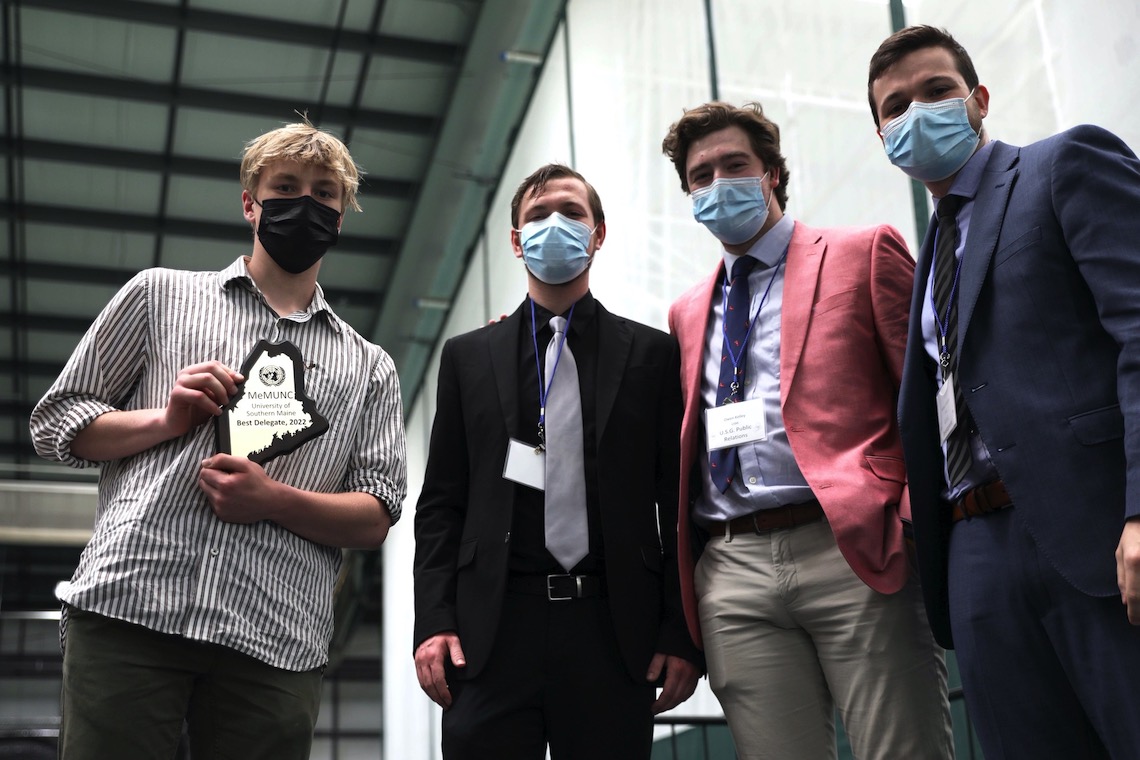
“There was a lot of differing opinions in the room and there was a lot of divisive topics that were being discussed,” Makowski said. “I think the reason that I was considered for this was the fact that I worked diligently and outside of committee hours to develop working papers that everyone could at least agree with partially.”
Beyond the Security Council, the debates in other committees covered wide-ranging issues like regulating cryptocurrencies, protecting pollinators, and repatriating stolen cultural objects to their countries of origin.
The urgent need to stop climate change received special attention during the opening ceremony in a keynote speech by Hannah Pingree. She is a former Speaker of the Maine House of Representatives, and currently serves as Director of the Governor’s Office of Policy Innovation and the Future.
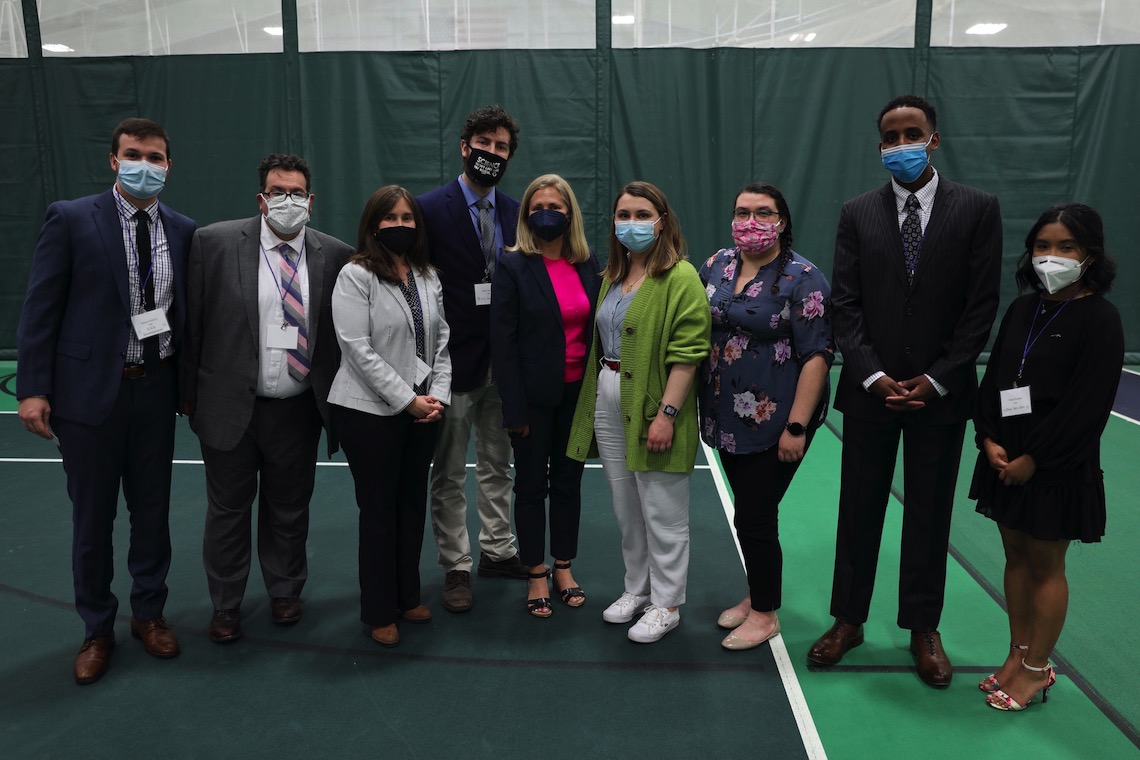
“I have a lot of hope because I’ve seen young people across our state, around our world, really rallying, pushing leadership,” Pingree said. “Young people motivate me every day to do my job and do it better. While climate is daunting, I think with young people’s engagement we at least will be moving in the right direction.”
The energy that delegates brought to their discussions was all the more emphatic because it was held back for so long. Restrictions on public gatherings during the COVID-19 pandemic shut down MeMUNC entirely in 2020, while the 2021 session was held online.
Enough progress has been made in managing the pandemic to allow MeMUNC to resume in person, albeit with certain safety measures in place. For example, masks were required to be worn for indoor activities.
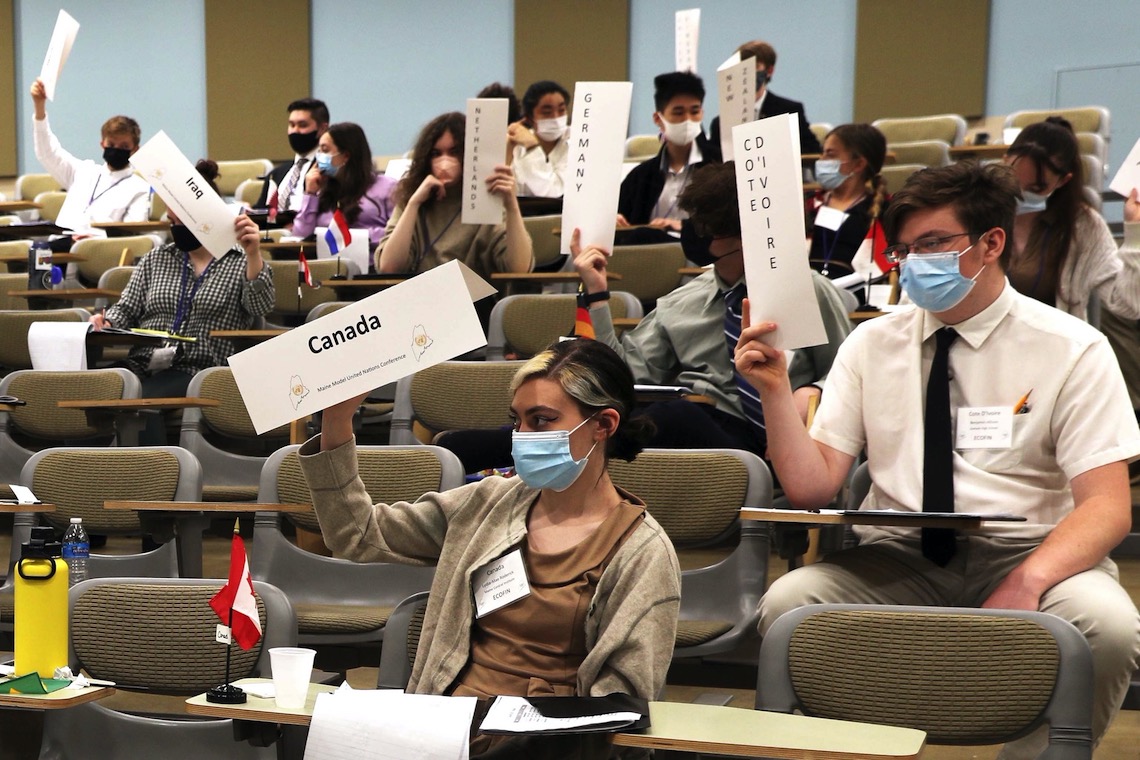
Organizers were determined to give participants an experience that was worth the wait. Dr. Timothy Ruback compared his life during the three days of MeMUNC to a ping-pong ball, bouncing furiously between his many responsibilities as co-director. He and fellow co-director Dr. Rebecca Gibbons began the planning process last fall during whatever time they could spare from their work as assistant professors of Political Science.
“I’m feeling a lot of that from just about everyone, the gratefulness for the moment. And in so doing, I think in some ways, it’s become a kinder conference,” Ruback said. “A renewed understanding that we are, all of us, on the same team even as we are representing all the nations of the world. In some ways, I guess that’s what the United Nations is all about.”

